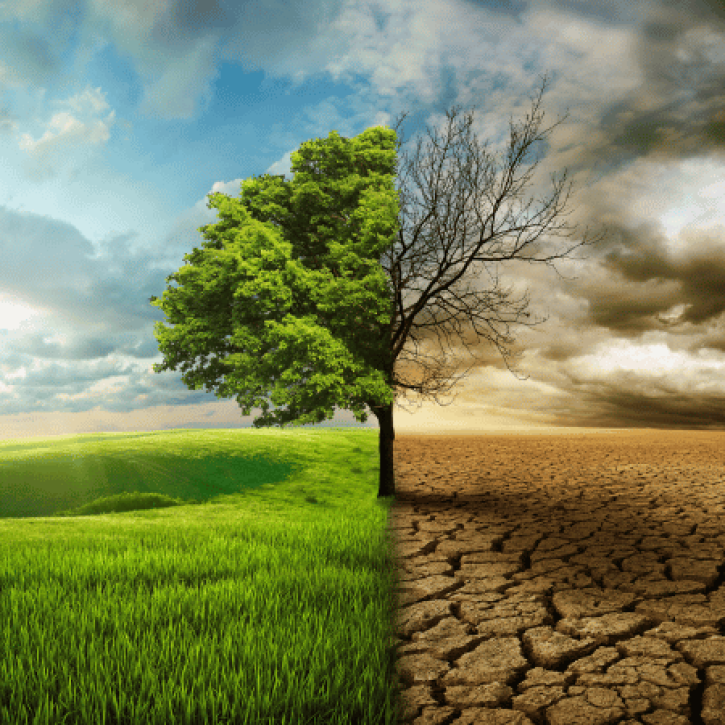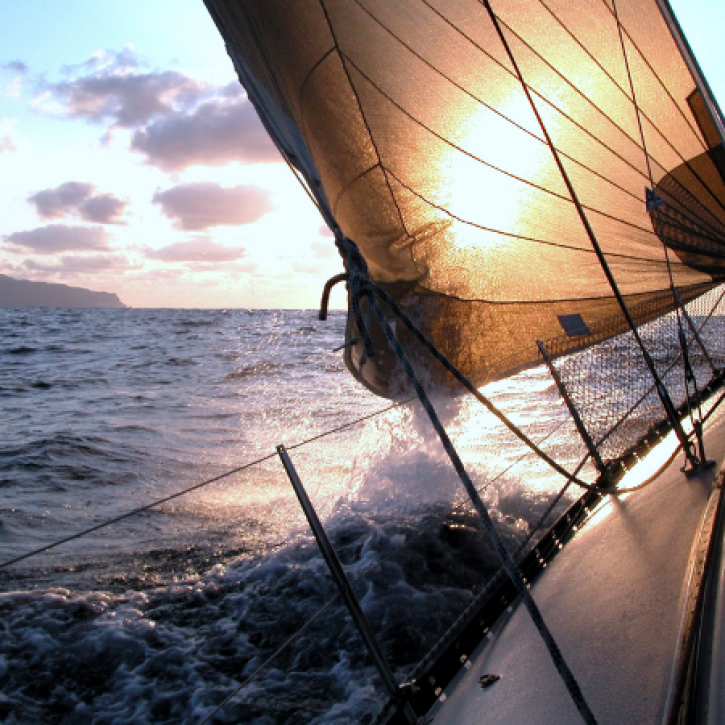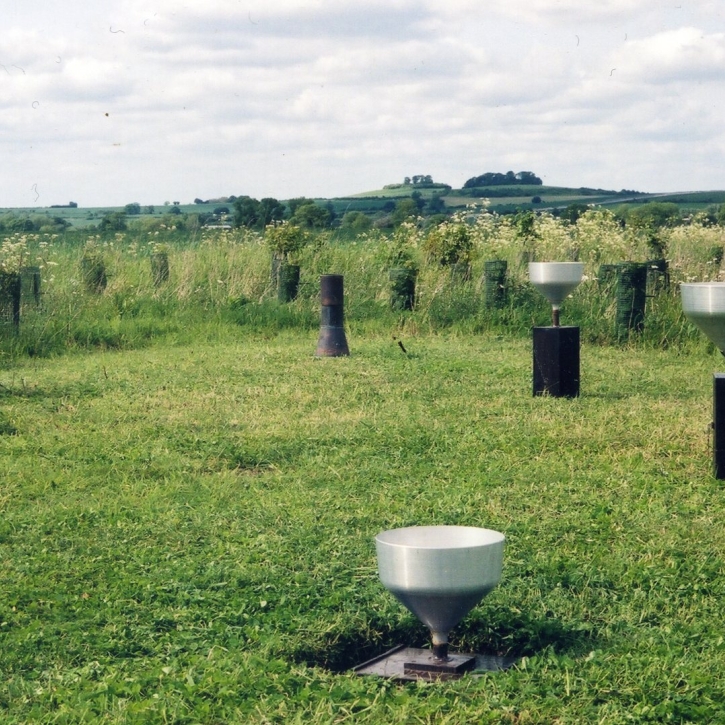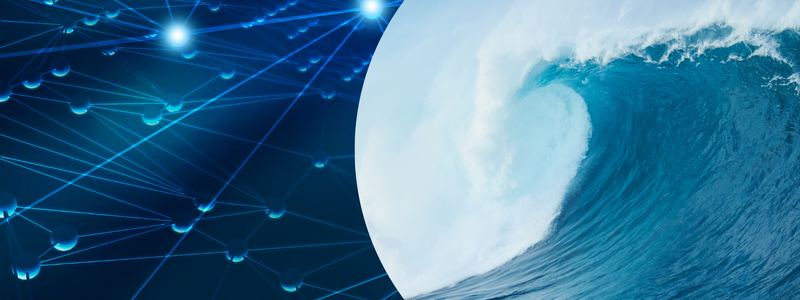

Ecosystem Connections in the Shelf Sea Environment Using Complex Networks
LOCATION
University of Reading
Whiteknights, Reading RG6 6AH
We use complex network theory to better represent and understand the ecosystem connectivity in a shelf-sea environment. The baseline data used for the analysis are obtained from a state-of-the art coupled marine physics-biogeochemistry model simulating the North-West European Shelf (NWES). The complex network built on model outputs is used to identify the functional types of variables behind the biogeochemistry dynamics, suggesting how to simplify our understanding of the complex web of interactions within the shelf-sea ecosystem. We demonstrate that complex networks can be also used to understand spatial ecosystem connectivity, both identifying the (geographically varying) connectivity lengthscales and the clusters of spatial locations that are connected. These clusters indicate geographic regions where there is a substantial flow of information between the degrees of freedom within the ecosystem, while information exchange across the boundaries of these regions is limited. The results of this study help to understand how natural, or antrophogenic, perturbations propagate through the shelf-sea ecosystem, and can be used in multiple future applications such as stochastic noise modelling, data assimilation, or machine learning.
Speaker
Ieuan Higgs
Ieuan Higgs is currently studying for a PhD at the University of Reading, from which he previously graduated with a BSc in Computer Science. He has always been drawn to projects that combine mathematics, computing, and environmental science, enjoying their interdisciplinary nature and potential for positive impact.
During his undergraduate studies, Ieuan won the UK Space Agency's "SatelLife Challenge." This national competition sought innovative proposals that would use satellite data to improve sustainability and the environment. Ieuan's winning idea, which he developed during his final year, involved the application of machine learning to automatically classify the changing land cover of the Amazon Rainforests.
Throughout his PhD, Ieuan has collaborated closely with the Plymouth Marine Laboratory, focusing on advancing our understanding of marine ecosystems in the UK. He has been employing machine learning techniques to enhance the data assimilation schemes used in forecasting the productivity of our oceans. Recent work has centred on uncovering the hidden connections among the dynamic components of the ocean.
Registration
REGISTRATION IS NOW CLOSED.
Recording
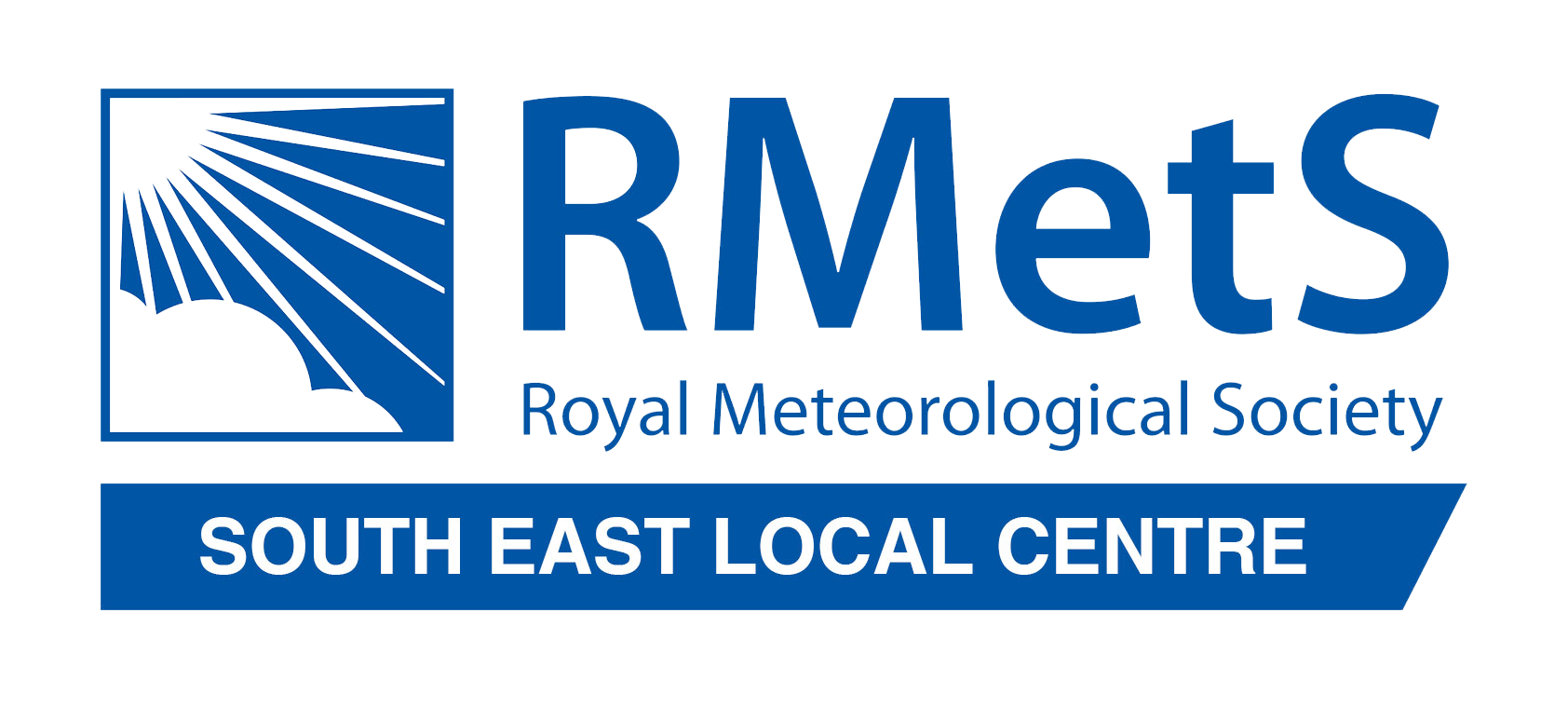 The Royal Meteorological Society has a number of local centres across the UK, where meetings are held throughout the year. The South East Local Centre are currently hosting monthly meetings which can be attended in person or virtually. For further information on the local centre, upcoming events or to be added to the mailing list, please contact southeast@rmets.org.
The Royal Meteorological Society has a number of local centres across the UK, where meetings are held throughout the year. The South East Local Centre are currently hosting monthly meetings which can be attended in person or virtually. For further information on the local centre, upcoming events or to be added to the mailing list, please contact southeast@rmets.org.
We use complex network theory to better represent and understand the ecosystem connectivity in a shelf-sea environment. The baseline data used for the analysis are obtained from a state-of-the art coupled marine physics-biogeochemistry model simulating the North-West European Shelf (NWES). The complex network built on model outputs is used to identify the functional types of variables behind the biogeochemistry dynamics, suggesting how to simplify our understanding of the complex web of interactions within the shelf-sea ecosystem. We demonstrate that complex networks can be also used to understand spatial ecosystem connectivity, both identifying the (geographically varying) connectivity lengthscales and the clusters of spatial locations that are connected. These clusters indicate geographic regions where there is a substantial flow of information between the degrees of freedom within the ecosystem, while information exchange across the boundaries of these regions is limited. The results of this study help to understand how natural, or antrophogenic, perturbations propagate through the shelf-sea ecosystem, and can be used in multiple future applications such as stochastic noise modelling, data assimilation, or machine learning.
Speaker
Ieuan Higgs
Ieuan Higgs is currently studying for a PhD at the University of Reading, from which he previously graduated with a BSc in Computer Science. He has always been drawn to projects that combine mathematics, computing, and environmental science, enjoying their interdisciplinary nature and potential for positive impact.
During his undergraduate studies, Ieuan won the UK Space Agency's "SatelLife Challenge." This national competition sought innovative proposals that would use satellite data to improve sustainability and the environment. Ieuan's winning idea, which he developed during his final year, involved the application of machine learning to automatically classify the changing land cover of the Amazon Rainforests.
Throughout his PhD, Ieuan has collaborated closely with the Plymouth Marine Laboratory, focusing on advancing our understanding of marine ecosystems in the UK. He has been employing machine learning techniques to enhance the data assimilation schemes used in forecasting the productivity of our oceans. Recent work has centred on uncovering the hidden connections among the dynamic components of the ocean.
Registration
REGISTRATION IS NOW CLOSED.
Recording
 The Royal Meteorological Society has a number of local centres across the UK, where meetings are held throughout the year. The South East Local Centre are currently hosting monthly meetings which can be attended in person or virtually. For further information on the local centre, upcoming events or to be added to the mailing list, please contact southeast@rmets.org.
The Royal Meteorological Society has a number of local centres across the UK, where meetings are held throughout the year. The South East Local Centre are currently hosting monthly meetings which can be attended in person or virtually. For further information on the local centre, upcoming events or to be added to the mailing list, please contact southeast@rmets.org.



